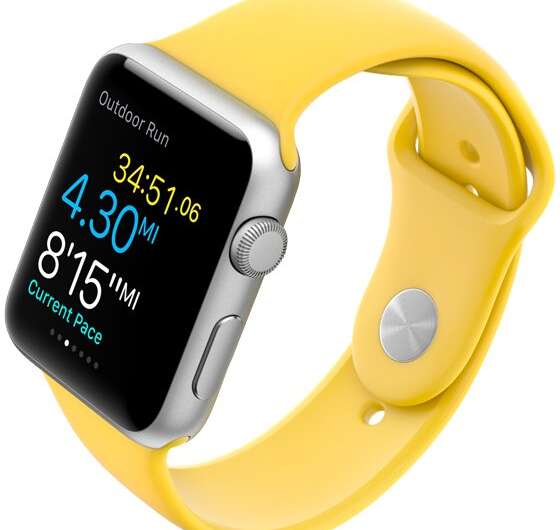This article has been reviewed according to Science X's editorial process and policies. Editors have highlighted the following attributes while ensuring the content's credibility:
fact-checked
peer-reviewed publication
trusted source
proofread
Wearable activity trackers accelerate hospital patient recovery, study finds

Fitbits, Garmins or Apple Watches, whatever your preference, wearable activity trackers could help patients recover faster during a hospitalization, potentially easing some pressures on Australia's overburdened hospital system, according to new research from the University of South Australia.
Published in JAMA Network Open today, the systematic review and meta-analysis found that when hospital patients wore activity trackers, they were more active, less sedentary, and had improved physical function (compared to patients undergoing usual care in hospital) and that this supported faster recovery.
Examining 15 studies with a combined total of 1911 patients (undergoing stroke rehabilitation, orthopedic rehabilitation, mixed rehabilitation, and various medical and surgical cohorts) the study found that patients achieved:
- 826 daily steps more than usual care
- 10 minutes more per day of active time compared to usual care
- 36 minutes less per day of sedentary behavior compared to usual care.
UniSA Ph.D. candidate and accredited exercise physiologist Kimberley Szeto says wearable activity trackers can accelerate patient recovery during a hospital stay due to their ability to improve patient activity and reduce sedentary behavior.
"Hospital stays are often marked by extreme patient inactivity, which paradoxically, can exacerbate other health issues, and lead to longer hospital stays," Szeto says.
"A lack of movement during a hospital stay can trigger a cascade of negative outcomes, from functional decline and frailty to disability, and even higher mortality risks."
"Wearable activity trackers such as Fitbits are a great intervention for improving physical activity and sedentary behavior during a hospital stay. This can also lead to improvements in clinical outcomes for patients, like physical function (which refers to the patient's ability to perform daily activities, like balancing and walking to where they need to go)."
"While 826 steps may not sound like a lot, the improvements that our study found are substantial, with other studies showing that increasing daily step counts by even 250-500 steps is associated with a reduced risk for prolonged hospitalization, discharge to non-home locations, and readmission."
Senior researcher, Professor Carol Maher says that wearable activity trackers are a promising intervention for improving patient activity and recovery during a hospitalization.
"The strain of hospital visits on the health system is significant. Wearable activity trackers are a cheap and effective tool that notably enhances the journey towards recovery."
More information: Kimberley Szeto et al, Interventions using wearable activity trackers to improve patient physical acttivity and other outcomes in adults who are hospitalized. A systematic review and Meta-Analysis, JAMA Network Open (2023). DOI: 10.1001/jamanetworkopen.2023.18478



















